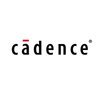Filter interviews by
Intel Interview Questions and Answers for Freshers
48 Interview questions
OOP in C++ is based on concepts like encapsulation, inheritance, polymorphism, and abstraction for better code organization.
Encapsulation: Bundling data and methods in classes. Example: class Car { private: int speed; public: void setSpeed(int s) { speed = s; }};
Inheritance: Deriving new classes from existing ones. Example: class ElectricCar : public Car {}; // ElectricCar inherits from Car
Polymorphism: Ability to...
Computer cache performance refers to the efficiency of the cache memory in storing and retrieving data for the CPU.
Cache performance is measured by hit rate, miss rate, and latency.
A higher hit rate indicates better performance as more data is found in the cache.
Cache misses result in slower performance as data needs to be retrieved from main memory.
Latency refers to the time it takes to access data in the cache.
C...
Clock gating is a power-saving technique used in digital design to disable the clock signal to certain parts of a circuit when they are not in use.
Clock gating helps reduce power consumption by stopping the clock signal to unused parts of the circuit.
It is achieved by inserting logic gates in the clock signal path to control when the clock is allowed to reach certain elements.
Clock gating can be implemented at dif...
If the circuit of an inverter is inverted, it will act as a buffer.
Inverting an inverter circuit essentially cancels out the inversion, making it act as a buffer.
The output will be the same as the input signal, with no inversion.
This can be useful in certain signal processing applications where a non-inverted signal is needed.
A stick diagram is a simplified way to represent the layout of a CMOS inverter circuit.
Use sticks to represent the diffusion regions of the transistors in the CMOS inverter
Draw a stick for the PMOS transistor connected to VDD and a stick for the NMOS transistor connected to GND
Connect the sticks with lines to represent the metal interconnects between the transistors
Label the input and output nodes of the inverter ...
ROC curve is a graphical representation of the performance of a classification model.
ROC curve stands for Receiver Operating Characteristic curve.
It plots the true positive rate (sensitivity) against the false positive rate (1-specificity) at various threshold settings.
The area under the ROC curve (AUC) is a measure of how well the model can distinguish between classes.
A perfect model would have an AUC of 1, while...
Left shift 1011, xor connected to first and last bit, clk 1111 will be there when 1011 is shifted left.
Perform left shift operation on 1011: 1011 << 1 = 0110
XOR the first and last bit of the result: 0 XOR 0 = 0
The clock signal 1111 will be present when the result of the XOR operation is 0
Reverse a linked list
Iterate through the linked list and reverse the pointers
Use three pointers to keep track of current, previous, and next nodes
Update the next pointer of each node to point to the previous node
To find a loop in a linked list, we can use the Floyd's cycle-finding algorithm.
Use two pointers, one moving at twice the speed of the other.
If there is a loop, the fast pointer will eventually catch up to the slow pointer.
If the fast pointer reaches the end of the list, there is no loop.
Verilog code for D flip-flop (DFF) is a fundamental building block in digital design.
Use always block to describe the behavior of DFF
Use non-blocking assignment to update the output based on the input
Include a clock signal to trigger the update of the output
Example: always @(posedge clk) begin q <= d; end
Intel Interview Experiences for Freshers
53 interviews found
I appeared for an interview in Mar 2025, where I was asked the following questions.
- Q1. What are the basic concepts of Object-Oriented Programming (OOP) in C++?
- Ans.
OOP in C++ is based on concepts like encapsulation, inheritance, polymorphism, and abstraction for better code organization.
Encapsulation: Bundling data and methods in classes. Example: class Car { private: int speed; public: void setSpeed(int s) { speed = s; }};
Inheritance: Deriving new classes from existing ones. Example: class ElectricCar : public Car {}; // ElectricCar inherits from Car
Polymorphism: Ability to call...
- Q2. Basic questions related to logic gates, memory, cache and computer architecture.
- Q3. Pseudocode, find errors in the code. What can be output of code
- Ans.
Analyze pseudocode for errors and potential outputs.
Check for syntax errors, such as missing semicolons or parentheses.
Verify variable initialization before use to avoid null references.
Ensure loops have proper termination conditions to prevent infinite loops.
Examine array indexing to avoid out-of-bounds errors.
Consider data types and conversions, especially in arithmetic operations.
Interview Preparation Tips
(2 Questions)
- Q1. Questions based on Projects
- Q2. Simple transistor question
I applied via Campus Placement and was interviewed in Apr 2024. There were 2 interview rounds.
(2 Questions)
- Q1. Stick diagram for nand CMOS inverter
- Ans.
A stick diagram is a simplified way to represent the layout of a CMOS inverter circuit.
Use sticks to represent the diffusion regions of the transistors in the CMOS inverter
Draw a stick for the PMOS transistor connected to VDD and a stick for the NMOS transistor connected to GND
Connect the sticks with lines to represent the metal interconnects between the transistors
Label the input and output nodes of the inverter for c...
- Q2. If we invert the circuit of inverter then what will happen
- Ans.
If the circuit of an inverter is inverted, it will act as a buffer.
Inverting an inverter circuit essentially cancels out the inversion, making it act as a buffer.
The output will be the same as the input signal, with no inversion.
This can be useful in certain signal processing applications where a non-inverted signal is needed.
(2 Questions)
- Q1. It was some random situation given then what I will do
- Q2. Like if my friends have some problem about any projects then how I will help
Interview Preparation Tips
(2 Questions)
- Q1. Find the maximum length of the string without counting the duplicated characters Many questions on os, coa, registers and assembly language.
- Q2. Project related questions. It was a resume based shortlisting.
(2 Questions)
- Q1. Questions on projects and coding.
- Q2. Simple mathematical coding question. Given constraints: solve in best time complexity
(1 Question)
- Q1. Tell me about clock gating
- Ans.
Clock gating is a power-saving technique used in digital design to disable the clock signal to certain parts of a circuit when they are not in use.
Clock gating helps reduce power consumption by stopping the clock signal to unused parts of the circuit.
It is achieved by inserting logic gates in the clock signal path to control when the clock is allowed to reach certain elements.
Clock gating can be implemented at differen...
I applied via Campus Placement and was interviewed in Feb 2024. There were 2 interview rounds.
(2 Questions)
- Q1. Asked few basic Dsa questions and questions about projects from your resume
- Q2. Reverse the linkedlist
- Ans.
Reverse a linked list
Iterate through the linked list and reverse the pointers
Use three pointers to keep track of current, previous, and next nodes
Update the next pointer of each node to point to the previous node
(1 Question)
- Q1. About myself, and few questions from OS and database. And why do you find fit for the role
Skills evaluated in this interview
I applied via Campus Placement and was interviewed in Mar 2024. There was 1 interview round.
(2 Questions)
- Q1. Promises questions from js
- Q2. 2 sum Basics of javascript,react js ,SQL,java
Interview Preparation Tips
Prepare well
One round online life coding, with the question being a simple find the smallest element from a list
I applied via Referral and was interviewed in Feb 2024. There was 1 interview round.
(2 Questions)
- Q1. Regarding Digital Design, Verilog
- Q2. Regarding MPI, Analog electronics and integrated circuits
Interview Preparation Tips
I applied via LinkedIn and was interviewed in May 2024. There were 2 interview rounds.
(2 Questions)
- Q1. It was talking about personality
- Q2. What are your strength and weaknesses
IQ Test to ask about my personality and a score generated.
Interview Preparation Tips
Top trending discussions






Intel Interview FAQs
The duration of Intel interview process can vary, but typically it takes about less than 2 weeks to complete.
Tell us how to improve this page.
Intel Interviews By Designations
- Intel Software Engineer Interview Questions
- Intel Component Design Engineer Interview Questions
- Intel Intern Interview Questions
- Intel SOC Design Engineer Interview Questions
- Intel Verification Engineer Interview Questions
- Intel Software Developer Interview Questions
- Intel Software Engineer Intern Interview Questions
- Intel Graduate Trainee Interview Questions
- Show more
Interview Questions for Popular Designations
- Software Engineer Interview Questions
- Intern Interview Questions
- Component Design Engineer Interview Questions
- SOC Design Engineer Interview Questions
- Graduate Trainee Interview Questions
- Verification Engineer Interview Questions
- Software Developer Interview Questions
- Validation Engineer Interview Questions
- Show more
Overall Interview Experience Rating
based on 31 interview experiences
Difficulty level
Duration
Interview Questions from Similar Companies
|
Software Engineer
393
salaries
| ₹15.8 L/yr - ₹35 L/yr |
|
SOC Design Engineer
234
salaries
| ₹17.8 L/yr - ₹32 L/yr |
|
System Validation Engineer
205
salaries
| ₹16.4 L/yr - ₹35.5 L/yr |
|
Design Engineer
195
salaries
| ₹18.2 L/yr - ₹33.9 L/yr |
|
Software Developer
192
salaries
| ₹20.2 L/yr - ₹38.5 L/yr |

Qualcomm

Nvidia

Microsoft Corporation

Tata Electronics
- Home >
- Interviews >
- Intel Interview Questions >
- Intel Interview Questions for Fresher















